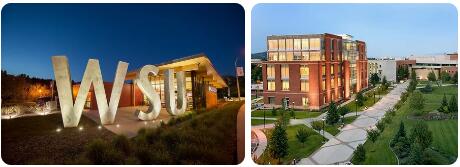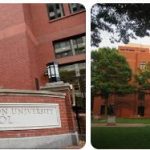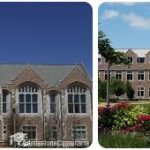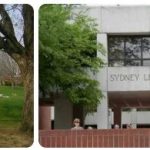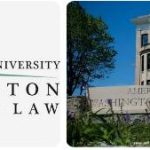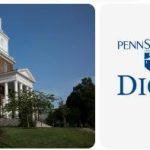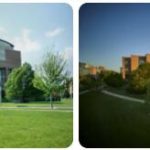Washington State University, nestled in the picturesque landscapes of the Pacific Northwest, stands as a beacon of higher education, research excellence, and community engagement. Established in 1890 as the state’s land-grant institution, WSU has evolved into a comprehensive university known for its commitment to fostering intellectual growth, advancing scientific discovery, and serving the diverse needs of Washington state and beyond.
Historical Foundation: Founded as the Washington Agricultural College and School of Science in 1890, WSU was established through the federal Morrill Act, which provided land grants for the establishment of agricultural and mechanical colleges. Over the years, the university expanded its academic offerings, underwent several name changes, and became Washington State University in 1959. WSU’s history is deeply intertwined with the development of the state and its dedication to providing accessible education.
Academic Offerings: WSU is recognized for its diverse and comprehensive academic programs, spanning a wide range of disciplines. The university comprises multiple colleges and campuses, including the College of Arts and Sciences, Carson College of Business, Voiland College of Engineering and Architecture, College of Agricultural, Human, and Natural Resource Sciences, and the Elson S. Floyd College of Medicine.
The academic offerings at WSU reflect a commitment to providing students with a well-rounded education. The university emphasizes experiential learning, research opportunities, and a curriculum that prepares students for the challenges of a rapidly evolving global landscape. Faculty at WSU are actively engaged in research, contributing to advancements in fields such as agriculture, environmental science, health, and technology.
Research Excellence: WSU has established itself as a research-intensive institution, fostering a culture of inquiry and innovation. The university’s research centers and institutes cover a broad spectrum of disciplines, from the Agricultural Research Center to the Institute for Shock Physics. WSU’s commitment to research is evident in its contributions to scientific discovery, technological advancements, and addressing pressing societal challenges.
The Elson S. Floyd College of Medicine, founded in 2015, further emphasizes WSU’s dedication to advancing healthcare through research and medical education. WSU’s research endeavors extend beyond its campuses, with collaborations and partnerships that amplify the impact of its scholarly activities.
Diversity and Inclusion: WSU values and celebrates diversity, fostering an inclusive campus environment where individuals from various backgrounds feel welcomed and respected. The university actively promotes diversity through initiatives, programs, and support services designed to create a culture of inclusion.
The Office of Multicultural Student Services and the Center for Intercultural Learning and Affirmation are instrumental in advancing diversity and inclusion at WSU. These entities provide resources, support, and programming that enhance the university’s commitment to ensuring an environment where all students, faculty, and staff can thrive.
Campus Life: The WSU campuses, located across the state, provide diverse and engaging environments for academic pursuits and student life. From the Pullman campus, the university’s main campus, to campuses in Spokane, Tri-Cities, and Vancouver, each location offers a unique atmosphere for learning and collaboration. Modern facilities, green spaces, and state-of-the-art research centers contribute to a vibrant campus life.
Beyond academics, WSU offers a rich campus life with numerous student organizations, clubs, and events. The Cougars, WSU’s athletic teams, contribute to the spirited atmosphere, and sporting events at venues like Martin Stadium and Beasley Coliseum bring the campus community together.
Community Engagement: WSU is deeply committed to community engagement and service. The university actively collaborates with local organizations, businesses, and government entities to address societal challenges and contribute to regional development. Extension programs, outreach initiatives, and partnerships with industry stakeholders reflect WSU’s dedication to being a positive force in the communities it serves.
The Division of Governmental Studies and Services, along with the Office of Research, extend WSU’s influence beyond academic research to provide valuable insights and support for policymakers, businesses, and communities across the state.
Notable Achievements: Washington State University has earned recognition for its contributions to education, research, and community service. The university’s programs in agriculture, veterinary medicine, and business are highly regarded, and its graduates play significant roles in various fields. WSU’s commitment to sustainability is evident in initiatives aimed at reducing the environmental impact of campus operations.
Challenges and Opportunities: As with any institution, WSU faces challenges, including budget constraints and the evolving landscape of higher education. However, the university is proactive in addressing these challenges and identifying opportunities for growth and innovation. Strategic planning, partnerships, and a commitment to adaptability position WSU to navigate the complexities of higher education in the 21st century.
Washington State University, with its historical foundation, commitment to research excellence, and dedication to community engagement, stands as a vital institution in the Pacific Northwest. The abbreviation “WSU” not only represents the name of the university but encapsulates a legacy of learning, discovery, and service. As WSU continues to evolve, it remains dedicated to its mission of providing accessible education, advancing knowledge through research, and serving the diverse needs of the communities it calls home across the state of Washington.
